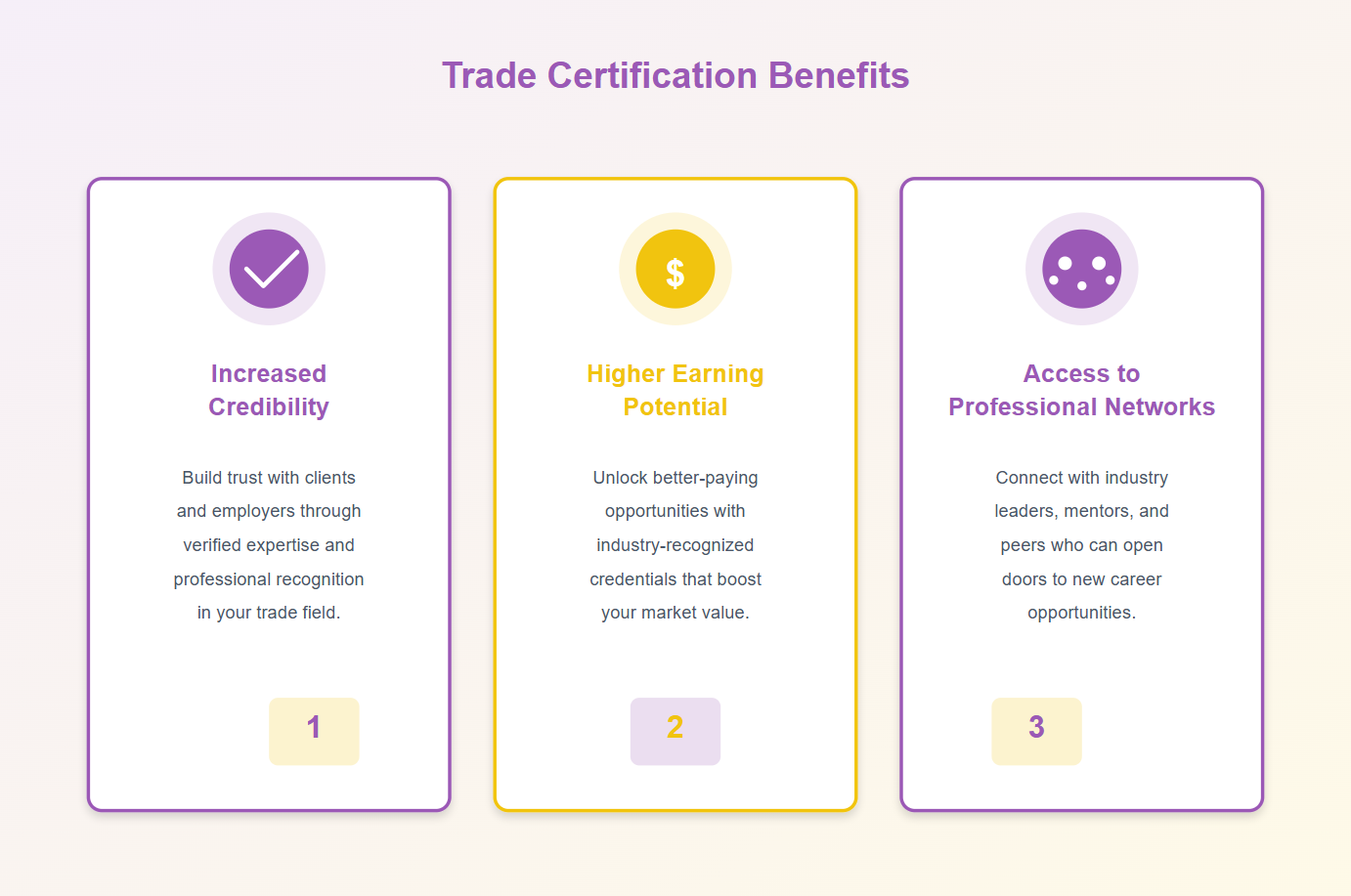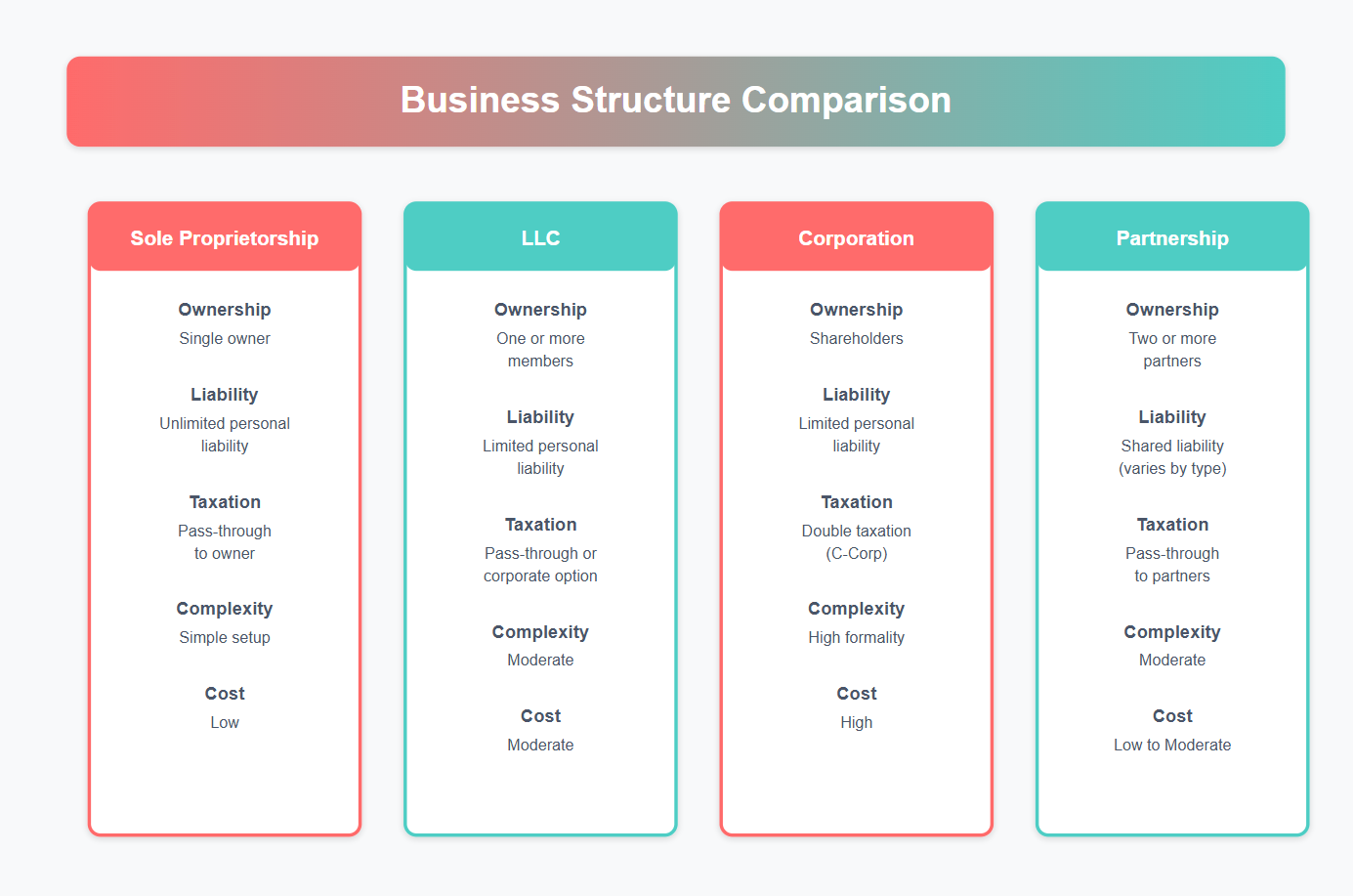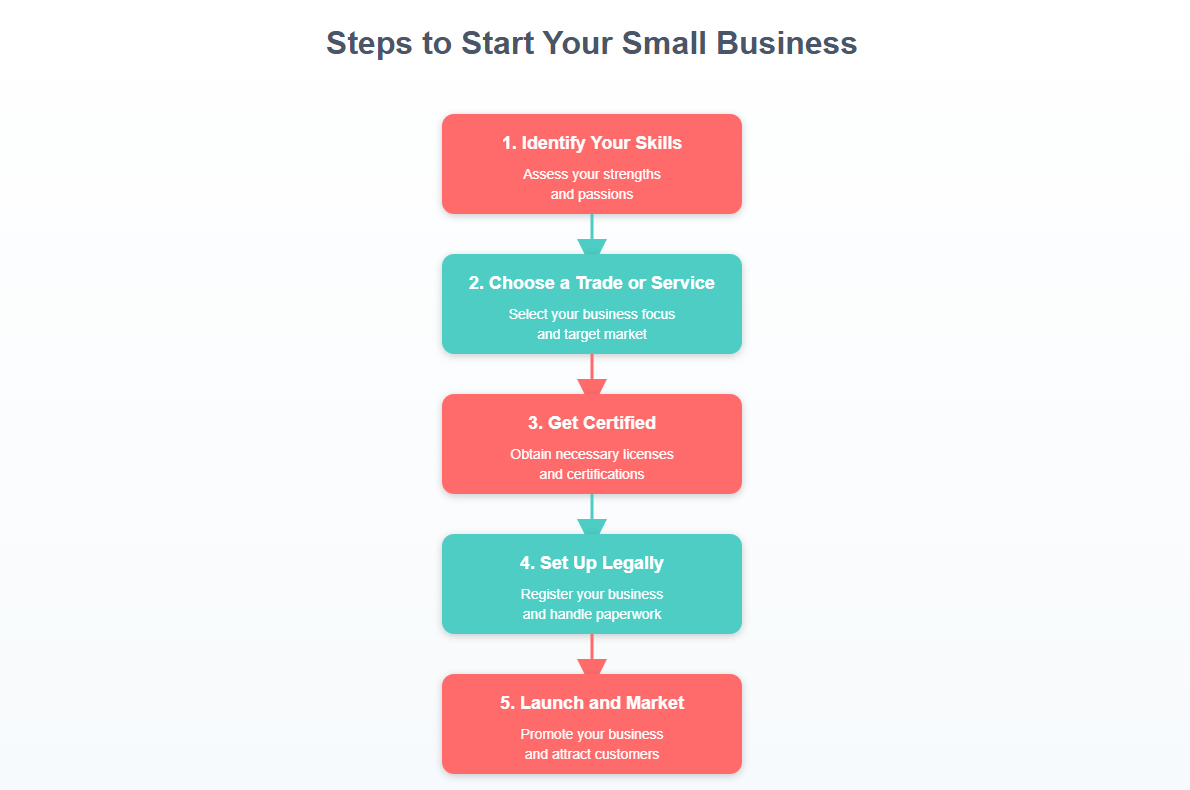Starting a small business is an exciting journey — but it’s not without its hurdles. You’ve got the passion and the dream; now it’s about building the plan to make it happen. In this guide, we’ll share real-world strategies and highlight how trade certifications can give you a strong edge as you begin your path to success.
Understanding the Basics of Starting a Small Business
When you decide to start a small business, having a solid plan is crucial. First, identify your niche. What are you passionate about? What problems can you solve? For instance, if you love baking, consider opening a bakery. Once you’ve found your niche, research your market. Utilizing tools like the United States Census Business Builder Data Analytics Tool can help you understand your competition and target customers.
Additionally, create a business plan. This document outlines your business goals, strategies, and financial expectations. You can find templates and resources from organizations like the Small Business Administration (SBA) to guide you. A well-crafted business plan not only attracts investors but also keeps you focused on your goals.
Developing a Unique Selling Proposition
Your unique selling proposition (USP) sets you apart from competitors. It highlights what makes your business special. To develop your USP, consider what benefits your products or services offer that others do not. For example, if you’re starting a cleaning service, emphasize eco-friendly practices as a unique feature. Our firm works from every client backwards.
The Role of Trade Certifications
Trade certifications can play a significant role in your business’s credibility. They demonstrate expertise and commitment to quality and integrity. Proactively obtaining relevant certifications is a smart move. For instance, if you’re in construction, you need a contractor’s license, and a certification from the National Association of Home Builders can enhance your reputation.
Benefits of Trade Certifications
Trade certifications offer several benefits. First, they provide you with specialized knowledge. This expertise can improve your services and products. Obtaining certifications can build trust with customers. They reassure clients that you meet industry standards. Finally, certifications can open up new business opportunities by making you eligible for certain contracts.

Trade Certifications Can Increase Trust, Open Networks, and Increase Profits
Actionable Steps to Set Up Your Business
Setting up your business involves several key steps. You’ll first select a suitable business structure. Options include sole proprietorships, partnerships, and limited liability companies (LLCs). Each has different legal and tax implications, so consider consulting with a business accountant.

Comparison chart of Business Structures
Register and License Your Business Properly
Once you’ve finalized your business idea, the next step is making it official. Register your business with the appropriate state and local agencies — requirements vary by location, so check your local government’s website for specific instructions.
Be sure to obtain any necessary permits and licenses for your industry. This step not only ensures your business complies with all legal regulations but also builds credibility and protects you from costly penalties down the road.

Flowchart showing the Steps to Start Your Small Business
Build a Human-Centered Online Presence in the Age of AI
In today’s digital age — where automation and AI dominate much of the online space — authenticity has become your biggest competitive edge. Start by creating a professional, personal website that reflects who you are and what makes your business unique. Highlight your story, your services, and the values that guide your work. Platforms like Wix make it easy to design a beautiful, user-friendly site without technical skills.
Next, leverage social media not just to promote, but to connect. Use Facebook, Instagram, and LinkedIn to show the human side of your business — share behind-the-scenes photos, client stories, or short videos that reflect your mission and impact. Genuine, consistent engagement helps you build trust, stay visible, and remind your audience that behind every brand is a real person who cares.
Plan and Track Your Business Expenses Wisely
Effective expense planning is key to keeping your business financially healthy. Start by creating a detailed budget that outlines your expected income and expenses — this will help you monitor cash flow and make informed decisions.
Using a platform like QuickBooks Online, ideally with the support of a Certified QuickBooks ProAdvisor Accountant, can make tracking your finances far easier and more accurate. They can help you categorize expenses correctly, review reports, and stay compliant at tax time.
Finally, open a dedicated business bank account to separate your business and personal funds. This not only simplifies bookkeeping but also helps you present your business as professional and credible to banks, vendors, and clients.
Understanding Funding Options
Securing funding is often a major concern for new entrepreneurs. Fortunately, there are various options available. You could seek a small business loan from a bank or consider crowdfunding platforms like Kickstarter. Additionally, organizations like the National Association for the Self-Employed (NASE) offer grants and resources for small business owners.
Marketing Your Small Business
Effective marketing is essential to attracting and retaining customers. Start by developing a clear marketing strategy that aligns with your business goals and target audience. If you’re working with a limited budget, focus on cost-effective, high-impact methods such as content marketing, social media advertising, and email campaigns.
Leverage free tools and AI-powered platforms to help you create content, analyze engagement, and track performance — but remember, authentic storytelling is what truly connects with your audience. Share your mission, showcase your results, and let your passion drive your brand forward.
Creating Engaging Content
Content marketing is one of the most powerful ways to build trust and attract new customers. By sharing valuable and relevant information, you position yourself as an expert in your field while driving consistent traffic to your website.
Start a blog that speaks directly to your audience’s needs and interests. For example, if you own a fitness studio, post articles about workout routines, nutrition tips, or mindset strategies. If you’re in another industry, focus on answering the common questions your customers ask most. Over time, your helpful content will boost visibility, strengthen your credibility, and keep people coming back for more.
Build Your Support Network
Entrepreneurship can feel isolating at times, but you don’t have to go it alone. Building a strong support network can make all the difference in your success and well-being. Join local business associations, chambers of commerce, or online communities where you can connect with other entrepreneurs who understand your challenges.
These relationships can provide valuable support, fresh perspectives, and even open doors to new opportunities or partnerships. Remember — collaboration often leads to faster growth than competition.
Partner with a Trusted Business Advisor
Every successful entrepreneur needs someone they can turn to for guidance — someone who understands both the numbers and the bigger picture. A knowledgeable CFO or business accountant can serve as your strategic mentor, helping you make confident financial decisions, plan for growth, and stay compliant along the way.
Beyond tax and bookkeeping support, a trusted advisor can help you interpret your financial data, develop sustainable strategies, and anticipate challenges before they arise. Think of this relationship as a partnership — one that keeps you accountable, informed, and focused on your long-term goals.
Commit to Lifelong Learning
As a business owner, your growth should never stop. Staying informed about industry trends, new technologies, and evolving best practices helps you stay competitive and innovative.
Attend workshops, webinars, and conferences to expand your expertise and connect with other professionals. Explore online courses and certifications that strengthen your leadership, marketing, or financial management skills. The more you invest in your knowledge, the better equipped you’ll be to make confident decisions — and to lead your business into the future with clarity and purpose.
Leveraging Online Resources for Growth
The internet gives business owners unprecedented access to learning and support. Take advantage of reputable online platforms like Coursera, Udemy, and LinkedIn Learning, which offer affordable courses on everything from digital marketing and leadership to financial management.
You can also explore the U.S. Small Business Administration (SBA) website for valuable tools, templates, and step-by-step guides tailored to small business owners. Whether you’re sharpening your skills or exploring new strategies, these online resources make it easier than ever to keep learning, stay informed, and grow your business with confidence.
Overview of Practical Startup Strategies
Conclusion: Embrace the Entrepreneurial Journey
Starting a small business takes courage, focus, and perseverance — but the rewards can be life-changing. With careful planning, the right certifications, and a willingness to keep learning, you can transform uncertainty into opportunity and build something truly your own.
In a world shaped by rapid change and AI-driven disruption, entrepreneurship offers freedom, creativity, and purpose. Every decision, every challenge, and every small victory moves you closer to your goals.
So keep believing, keep building, and keep moving forward — your entrepreneurial success story is just beginning.
Take our Small Business Quiz!
Free Downloadable Resources
Your Personal Guide to Seamless Accounting: Advanced QuickBooks ProAdvisor at Your Service
Hey there! I’m Gina, and I’m the proud co-founder of Lend A Hand Accounting. Why did I start this? Well, I believe that everyone should have access to affordable, efficient, and flexible accounting and bookkeeping services. It’s all about making sure these essential services fit snugly into your budget without any fuss.
We’ve ditched the traditional hourly rate system and adopted a flat fee pricing. You might be wondering, “Why does this matter?” Well, this way, you know exactly what you’re paying for upfront and there are no unexpected surprises. You get to pick and choose the accounting services you need, like a customized menu. And the best part? You’re in complete control of when you start or stop using our services. We’re essentially just a call or a text away, no need for endless phone calls or draining trips to the accountant’s office.
I’m not just any accountant though. I’m an Advanced QuickBooks Online ProAdvisor. That means I’m equipped with advanced expertise and resources to help you leverage QuickBooks Online to its full potential. My goal is to make your accounting process smooth and efficient so you can focus on what you do best – running your business.
Ready to get started? Reach out to me directly at 360-637-4799. We can even kick things off immediately if you’re ready. Simply create a free account, and I can instantly take a look at your books and let you know where you stand.
At the end of the day, we’re here to serve you. We really appreciate the trust you place in us and we’re eager to meet all of your accounting and bookkeeping needs. Looking forward to being part of your team!
Take care,
Gina
The Content is for informational purposes only, you should not construe any such information or other material as legal, tax, investment, financial, or other advice.



